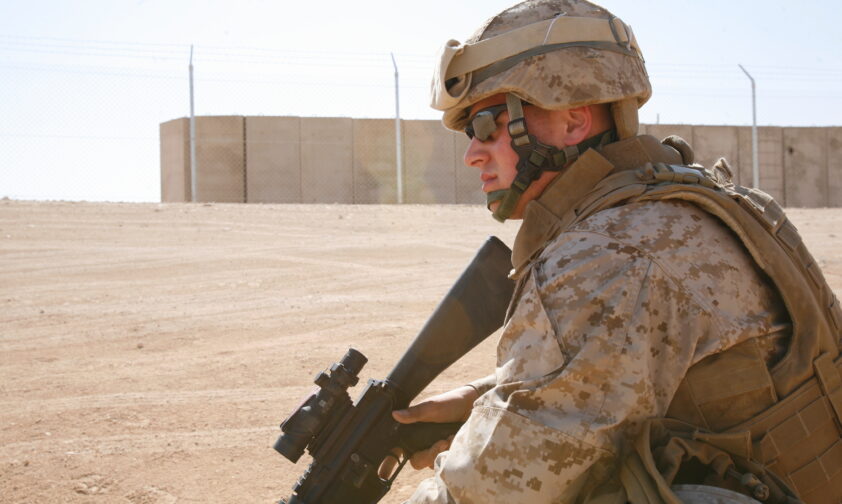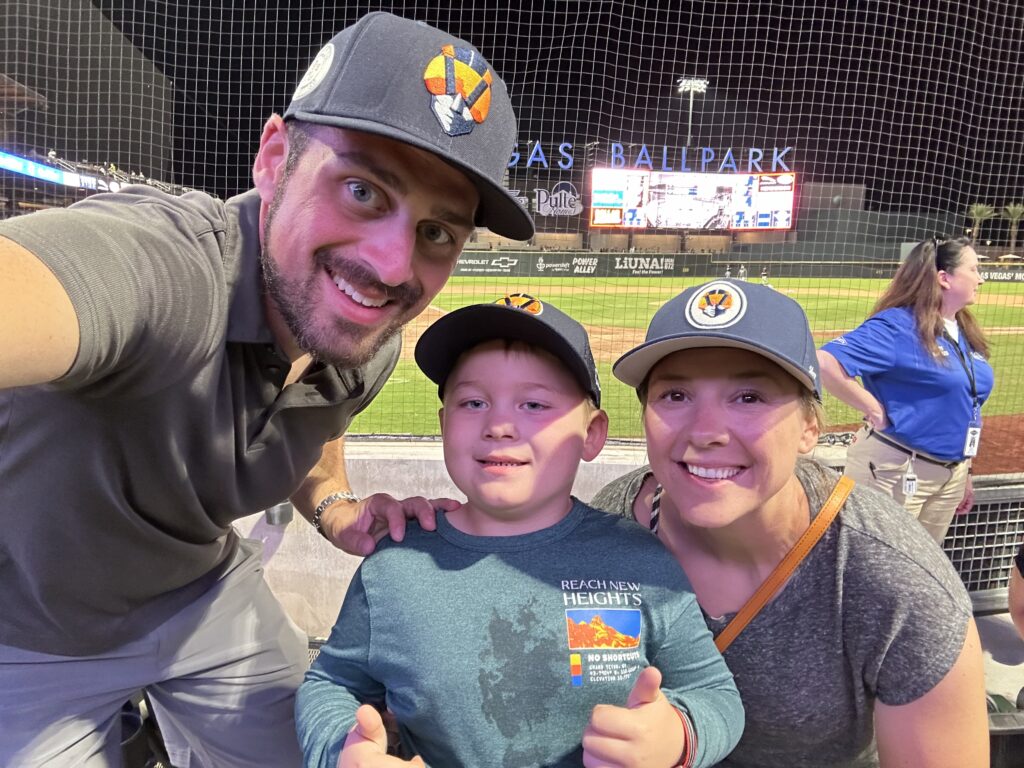
When VA delays become deadly: A Marine’s case for the Veterans’ ACCESS Act
At just 33 years old, with a wife and young children, Marine veteran Sam Howard hadn’t anticipated facing any serious medical issues for years to come. But when he began rapidly losing weight, his wife, Tilly, urged him to visit the local Department of Veterans Affairs facility and ask for a colonoscopy.
The Howards were met with disappointment. Despite the warning signs, the VA’s policy was no colonoscopies for veterans under 40.
That denial would set off a chain of costly delays, further denials, and appeals that nearly cost Sam his life, forced his family to spend tens of thousands of dollars out of pocket, and highlighted why Concerned Veterans for America supports the Veterans’ ACCESS Act.
A system that put an American hero’s life in jeopardy
Unwilling to accept the VA’s assessment, Sam and Tilly paid $2,000 for an out-of-pocket specialist, who confirmed the devastating news that Sam had Stage 3 esophageal cancer.
Sam endured several rounds of chemo and a staggering 28 radiation sessions. Sam’s body was being pushed to the limit, all to prepare for his life-saving surgery.
The couple had quickly informed the VA in April, but the VA couldn’t schedule Sam’s surgery until August, over three months later.
Worse, the VA’s recommended surgery was in Palo Alto, California. Not only was this an eight-hour drive from where the couple lived in Las Vegas, but the wait meant that much of the chemotherapy’s effects would wear off. Instead of risking it, the Howards paid $70,000 out of pocket for the surgery at a Mayo Clinic in Phoenix.
It’s a good thing, too.
His surgeons told him that if he had waited another couple of weeks, like the VA wanted, he likely would have died.
The unseen cost: Caregivers’ sacrifices
Tilly’s experience was also traumatizing. She often stayed up until the early morning hours, battling paperwork and appeals as the VA attempted to deny coverage for the tens of thousands of dollars the couple had already spent.
“Instead of preparing for surgery with my husband, I was fighting paperwork at 2 a.m.,” she recalled.
She selflessly served as his full-time caregiver, scheduler, and advocate while also studying to become a special education teacher and taking care of extended family with special needs.
Reflecting on veterans who don’t have a caretaker or consistent advocate, she knows that many veterans could die waiting for VA approvals.
Sam’s fight continues
Even with his first surgery and chemo treatments finished, the battle wasn’t over.
Sam has post-op complications due to the surgery delay, as well as liver issues and regular esophagus dilations.
Through all this, the VA disputes the payments for surgery and specialist visits to this day.
Nevada’s broken system reflects a national trend
Sam’s story is deeply personal, but unfortunately, it isn’t unique.
As of this writing, new patient veterans in Las Vegas face:
- 120-day waits for primary care visits
- Almost two-month waits for pain medicine prescriptions
- No local mental health providers for entire communities
The system isn’t keeping up, leaving vets with no choice but to travel across state lines to Utah for basic care.
Why the Veterans’ ACCESS ACT matters
Sam’s battle for what he’s earned shows why veterans need timely access to care, and why the ACCESS Act is so important.
The bill establishes policies that, for the first time, let veterans seek private-sector care if the VA’s options are too slow or too far away. That means clearer guarantees for diagnosis and treatment, faster and more transparent appeals, and greater accountability for offering veterans outside referrals if the VA misses its timeline.
How veteran care access can lead the way for all Americans
The stakes aren’t abstract. They are life and death.
This isn’t just a political game; vets, like all Americans, need effective health care.
Veterans often encounter the broken VA system firsthand ― a cautionary tale of what happens when individuals aren’t equipped to access timely, high-quality health care. The lessons are clear: competition and accessibility are needed for a working health care system. Fixing the VA creates a roadmap for improving health care across the country.
Congress should pass the Veterans’ ACCESS Act to provide permanent certainty about veterans’ care choices inside and outside the VA. That way, veterans like Sam don’t have to fight two battles: one for their country and one to survive the health care system at home.
Join the mission at CVA.org ― because securing permanent community care access standards isn’t just good for veterans, it’s a step toward a stronger, freer America.
Related Content

CVA Thanks President Donald Trump for Signing the Continuing Resolution to Get Government Back to Work

CVA Applauds Congressional Passage of Continuing Resolution to Reopen the Government, Calls for Reform to Prevent Future Shutdowns




